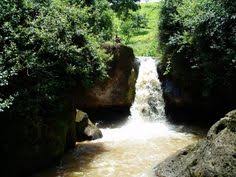What is Biodiversity?
Biodiversity means the variety of all living things on Earth. This includes plants, animals, tiny organisms, and even their genes. It also covers all the places they live—like forests, rivers, and oceans. Biodiversity is important because it supports all life and keeps the planet healthy.
Why Do We Need Biodiversity?
Biodiversity gives us many things we need to live—like medicine, food, clean air and water, rich soil, and help with climate control. For example, artemisinin, a key medicine for malaria, comes from a plant found in nature.
Nature also holds helpful genes that scientists use to make crops stronger and more resistant to pests, diseases, and climate changes. This helps feed the growing world population. In fact, all the world’s major development goals depend on biodiversity. Without healthy nature, we can’t have safe food, good health, or strong economies.
Who is Responsible for Conserving Biodiversity?
Everyone has a role in protecting biodiversity. At a community event, a farmer once asked why people should care about birds that damage their crops. This shows how some think conservation is only for rich or foreign people. But biodiversity belongs to all of us. When we lose species or forests, the whole world suffers. COVID-19 showed us how harming nature can lead to problems everywhere. So, taking care of the environment is everyone’s job.
Environmental Destruction and Human Health
The health of the environment is closely tied to human health. Over the past 20 years, new and returning diseases have become more common—many of them spread between animals and humans.
When we cut down forests, destroy animal homes, or sell wild animals, we increase the chances of diseases passing to humans. Eating wild meat has been linked to deadly diseases like Ebola and Lassa fever. Also, when predators disappear, prey animals grow in number—and so do the germs they carry—creating more danger for humans.
Vultures: Nature’s Own Sanitizers
Vultures show how closely biodiversity and human health are connected. Though people often think vultures are bad or unlucky, they play a very important role in nature. Vultures eat dead animals, cleaning up the environment and stopping the spread of diseases.
Without vultures, dead animals would rot and spread sickness like botulism. This could lead to health problems and economic loss. Sadly, vultures in Nigeria and other parts of Africa are disappearing fast because of hunting and poisoning. Losing them would hurt both nature and people. Saving vultures helps protect our health too.
A Call for Peaceful Coexistence
The health of the Earth and the health of people go hand in hand. Destroying forests, killing wildlife, or using nature too much doesn’t just hurt animals—it also creates big risks for us, like new diseases, food shortages, and economic trouble.
Living in peace with nature is not just the right thing to do—it’s necessary for our survival. Protecting biodiversity means protecting ourselves, our families, and future generations.


